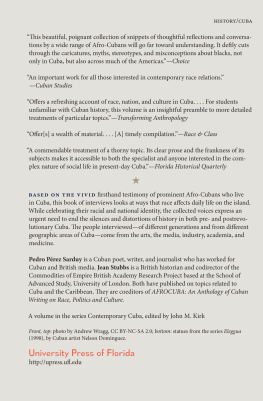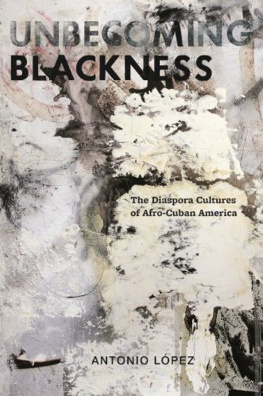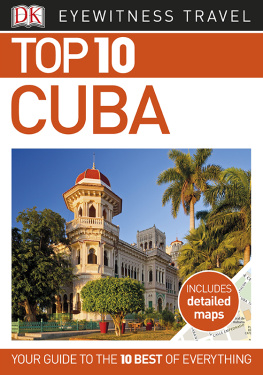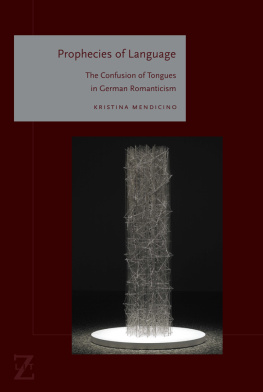Kristina Wirtz is associate professor of anthropology at Western Michigan University. She is the author of Ritual, Discourse, and Community in Cuban Santera.
Publication of this book has been aided by a grant from the Bevington Fund.
The University of Chicago Press, Chicago 60637
The University of Chicago Press, Ltd., London
2014 by The University of Chicago
All rights reserved. Published 2014.
Printed in the United States of America
23 22 21 20 19 18 17 16 15 14 1 2 3 4 5
ISBN-13: 978-0-226-11886-4 (cloth)
ISBN-13: 978-0-226-11905-2 (paper)
ISBN-13: 978-0-226-11919-9 (e-book)
DOI: 10.7208/chicago/9780226119199.001.0001
Library of Congress Cataloging-in-Publication Data
Wirtz, Kristina, author.
Performing Afro-Cuba : image, voice, spectacle in the making of race and history / Kristina Wirtz.
pages cm
Includes bibliographical references and index.
ISBN 978-0-226-11886-4 (cloth : alkaline paper)ISBN 978-0-226-11905-2 (paperback : alkaline paper)ISBN 978-0-226-11919-9 (e-book)
1. BlacksRace identityCuba. 2. BlacksCubaSocial life and customs. 3. BlacksCubaSocial conditions. 4. FolkloreCubaHistory. I. Title.
F1789.N3W57 2014
305.896'07291dc23
2013038110

This paper meets the requirements of ANSI/NISO Z39.481992 (Permanence of Paper)
Agradecimientos
A word of thanks hardly repays the debt of gratitude I owe to ever-growing numbers of friends and colleagues whose generosity and insight have shaped the very possibility of this book. May their gifts and my thanks continue our cycle of friendship and exchange into the future: to those named herein and those who remain unnamed, I say: thank you, gracias, modupwe.
I begin by thanking my Cuban interlocutors, many of whom have become dear friends over the course of my engagement with Cuba, which now spans more than a decade. Some have watched me grow up from my days as a graduate student and neophyte in matters of Cuban culture; I hope that I have made them proud and that they see how important their patient introductions and explanations have been, even if my interpretations may sometimes surprise them. Foremost I must thank my mentor Licenciado Ernesto Armin Linares, and my hermanas cubanas, Mara Isabel Berbes Ribeaux and Teresita de Jess Reyes Guerrero, who offered incomparable companionship and whose entire families offered me a place to call home. I also thank my hermanos, A. Abelardo Larduet Luaces and Marcos Antonio Salomon Guerra. Maritza Martnez Martnez and Mabel Castro taught me passion for the conga and carabal, as did Benito Rodriguez and Imilce William of Olugo. Conversations over the years with Luisa Mara Ramrez Moreira, Olguita Portuondo Ziga, and more recently with Gladys Gonzalez and with Suitberto Goire, alas now with the ancestors, gave me much food for thought. Nurina Salas always tended to my spiritual well-being. This list barely scratches the surface, and so I must express my gratitude to all those in Cuba who have demonstrated such tremendous hospitality and openness.
I especially want to highlight the generosity of many groups in Santiago de Cuba who immeasurably enrich Cuban arts, letters, and life, and without whose welcome my ethnographic explorations would not have been possible: I thank the Taller de Religiones Populares of the Casa del Caribe and its director Orlando Vergs Martnez, the Ballet Folklrico Cutumba and its director Idalberto Bandera Guerrero, the Ballet Folklrico de Oriente and its director Milagros Ramirez Gonzalez, the Conga and Conga Infantil de los Hoyos, the Cabildo Carabal Isuama, and the Cabildo Carabal Olugo.
My fellow American travelers in Santiago have provided love, moral support, and intellectual rigor: Grete Viddal, Jalane Schmidt, Hanna Garth, and most especially my Western Michigan University colleague Sarah Hill, whose superb ethnographic eye and comadrazco on many trips to the field have immeasurably helped this project. Sarah also first drew my attention to the work of Goire and convinced me to attend to issues of materiality more generally.
I thank additional colleagues at Western Michigan University and especially in the Department of Anthropology, as well as department chairs Robert Ulin, Ann Miles, and LouAnn Wurst for the supportive academic environment, as well as Maria Prez-Stable, librarian extraordinaire, for help in tracking down old references to bozal, and my colleague Pablo Pastrana Prez in the Department of Spanish for help with the early Spanish context of mamarrachos.
Being a faculty fellow of the Ethnographic Video for Instruction and Analysis Digital Archive Project at Indiana University in summer 2009 provided precious time to delve into my earliest field video recordings, from which emerged key insights shaping this book. Western Michigan University provided the needed financial support for my research between 2006 and 2011 through College of Arts and Science Teaching and Research Awards, International Education Faculty Development Fund Awards, and especially a substantial Faculty Research and Creative Activities Award in 2009. These made possible my National Endowment for the Humanities Summer Stipend Award in 2012.
Many readers and listeners have engaged earlier versions of my work and encouraged me to clarify, deepen, sharpen, and widen my interpretations, conference paper by conference paper, chapter by chapter, and sometimes in toto. Their incisive critiques have challenged me to improve despite my own limitations, which no doubt remain evident. I especially thank Hilary Parsons Dick, Paul Christopher Johnson, Stephan Palmi, Matt Tomlinson, Bonnie Urciuoli, Allen Webb, anonymous reviewers, and participants in the Michicagoan linguistic anthropology faculty seminar (for valuable collective and individual feedback and encouragement), the Caribbean: Identities and Conflicts Cuba Conference at the University of Bergen, the University of Chicago Monday seminar, the Michigan State University Latin American Studies seminar, and the Western Michigan University Department of Spanish seminar.
I thank my editor, T. David Brent, assistant editor Priya Nelson, manuscript editor Yvonne Zipter, and the staff of the University of Chicago Press for their excellent and meticulous work in taking this book through the production process. My heartfelt thanks to TDB, especially, for his encouragement throughout the process.
My family has cheerfully accompanied me to Cuba or stayed behind when I went, tolerated endless hours of obsessive research and writing, and helped me toward insights only loving nonanthropologist spouses and small children can provide. Ed, Yasmin, and Naim have also ensured that everything I do keeps its context of love, compassion, and humanity. I hope Yasmin and Naim will understand that my drive to understand racialization and other inequalities is in the hope of a better world for them. I thank my familyMonika, Steven, Jaquelyn, Stan, and Mimi, and especially my mother Almut for always believing in me, while keeping me honest. I dedicate this book to my father, Jack Wirtz (19412007), who was there at its beginnings and would have read it with great interest, and whose voice I miss more than I can say.
Material from appears in A Brutology of Bozal: Tracing a Discourse Genealogy from Nineteenth-Century Blackface Theater to Twenty-First-Century Spirit Possession in Cuba,

 This paper meets the requirements of ANSI/NISO Z39.481992 (Permanence of Paper)
This paper meets the requirements of ANSI/NISO Z39.481992 (Permanence of Paper)









